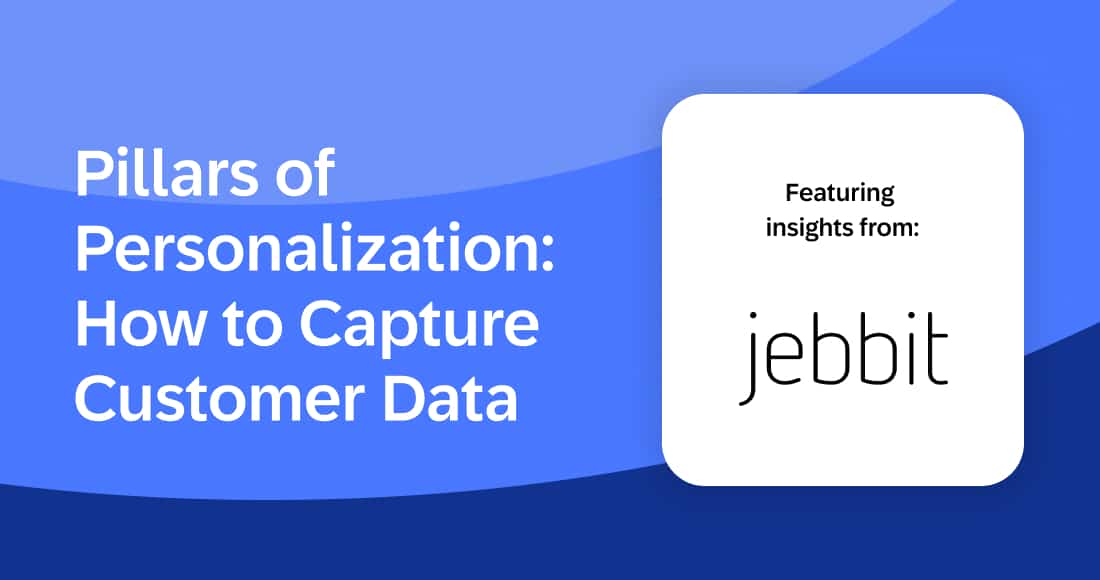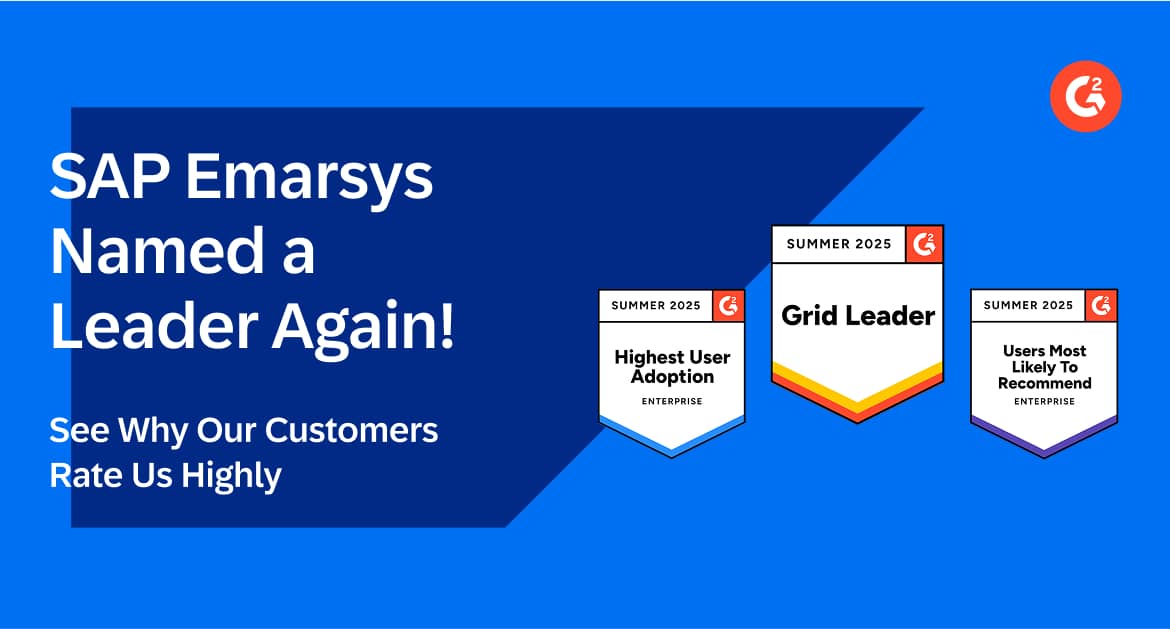Imagine if every one of your customers felt like your brand’s marketing was created just for them, designed to connect them with products they love and help them find exactly what they need, faster.
That’s the kind of power first- and zero-party data can give you.
As a marketer, having the right customer data in your arsenal opens up a world of opportunities for crafting compelling experiences that capture attention, convert, and keep customers coming back.
But with customers growing more protective of that data with every form they fill out, acquiring it isn’t as simple as offering 10% off.
It requires strategy — getting closer to your audience, listening, and learning what makes them tick.
The following steps in this article will help you build a data capture strategy that gets you the customer knowledge you need to create experiences that resonate with your audience on a 1:1 level. Let’s get started.

1. Know What Data You Have, What You Need, and How to Get it
Before diving deep into the world of first-party data, you need to anchor yourself by knowing what you already have and what data you’re looking for.
This requires a data audit — a phrase that can strike fear into the hearts of even the most resilient of marketers.
But data audits don’t have to be scary.
The process starts with working out what customer data you already have and using it to lay out a customer journey map. With this map, you’ll identify gaps in your data strategy — areas where, if you had the right data, you’d be able to create more targeted, relevant customer experiences.
As you start to build your data capture plan, ask yourself these questions:
- What do you already know about your customers?
- What don’t you know, that would be helpful for your marketing strategy?
- What specific use cases do you need to solve for in the next year?
With this information in hand, consider the points in your customer journey where it’s appropriate to gather customer data. Be up front with your customers on how you’re planning to use that data, and deliver on the value you promise them.
2. Build Trust with Your Audience
So, you know what data you need — but why should your customers give it to you?
Customers give you permission to use their data, and they can take that permission away in the blink of an eye. As a result, when it comes to capturing and keeping the data you need, trust is absolutely integral.
Transparent communication about how you use data lays the groundwork for this trust. Be clear and upfront with your customers about:
- What data you’re collecting
- Why you’re collecting it
- How this benefits them
- How you’re planning to store it
This transparency is the first step in turning skeptical visitors into willing participants in your data journey.
Demonstrating strong data privacy and security practices goes beyond fulfilling regulatory requirements. It’s a clear signal to your customers of your commitment to safeguarding their information.
By implementing these practices and clearly communicating them to your audience, you reassure them that their data is secure. Making privacy policies visible, using straightforward language, and ensuring these policies are easily accessible can significantly enhance trust.
3. Create a Compelling Value Exchange
The secret to unlocking your customers’ data lies in the value you offer in return.
Yes, the age-old principle of give-and-take is still alive and thriving, especially in the digital marketing world. This is known as the value exchange, a simple yet powerful concept that can revolutionize the rate at which you can acquire zero-party data.
Gone are the days when a static pop-up asking for an email address was enough. Today’s customers expect more. Much more. They’re looking for a reason to share their information, and generic opt-in requests just won’t cut it. Why? Because as the digital landscape becomes more crowded, customers have grown more selective about who they share their data with, leading to declining opt-in rates across industries.
If you want to beat these odds, you need to focus on creating compelling digital experiences that offer a clear value exchange to your customers.
This is where platforms like Jebbit come in.
Jebbit provides leading interactive quiz software that helps brands boost conversions, increase engagement, and capture valuable data through compelling value exchanges.
With Jebbit, a value exchange can take many forms, including:
- Saving your users time
- Providing relevant product recommendations
- Educating customers on specific product ranges
- Unlocking key benefits they can redeem
- Quizzing customers on their knowledge
By turning a simple data exchange into a rewarding experience that benefits all parties, Jebbit is able to create interactive experiences that drive engagement, grow customer trust and satisfaction, and gain accurate, actionable zero-party data in return.
“Creating a meaningful value exchange isn’t just about data collection — it’s about forging an assumption-free relationship where both parties feel valued and understood. At Jebbit, we believe in turning every interaction into an opportunity for engagement, where the customer doesn’t just share their data but feels genuinely rewarded for doing so.
Pam Erlichman, Chief Evangelist @ Jebbit
This approach transforms the traditional transactional nature of data exchange into a mutual, trust-building journey. It’s not just about what data we can gather, but about how we use that data in a way that makes customers feel heard in the process. When customers see the value in sharing their data, typically through more relevant communications, they’re not just participants — they become advocates for a brand that respects and rewards their contribution.” – Pam Erlichman, Chief Evangelist @ Jebbit
3 Value Exchange Examples to Inspire Your Data Strategy
1. Samsonite uses Jebbit’s Product Match quizzes to create a compelling value exchange
Samsonite, a global leader in luggage, business, and travel accessories, had a clear goal — increasing key business metrics like retention, conversion rates, and providing their customers with a more relevant, personalized shopping experience.
Jebbit’s interactive quiz capabilities offered the perfect solution. This innovative tool enabled Samsonite to create a Product Match quiz that guided customers through a series of questions about their travel habits and preferences, providing them with personalized product recommendations in exchange for their data.
The brilliance of the Product Match quiz was in its ability to offer something valuable to both the customer and Samsonite:
- Customers receive recommendations tailored to their specific travel needs and preferences, making it easier to find the perfect product.
- Samsonite gains insights into the customer’s preferences, enabling more targeted marketing and product development efforts.
The implementation of Jebbit’s quiz translated into notable improvements across key metrics for Samsonite:
- 58% of website visitors who clicked on the quiz actively engaged with it.
- 60% of users who started the quiz completed it.
- 50% of the users who completed the quiz proceeded to click through and shop for their recommended products.
2. LoveSeen uses personalization to capture valuable customer data
LoveSeen, a brand that brings a new level of flair to false eyelashes, turned to Jebbit to supercharge their customer engagement and data capture efforts.
They utilized a Find My Lash product recommendation quiz, designed to guide customers through a series of questions about their lash preferences and eye shapes, recommending the perfect pair of lashes for each customer based on their individual responses.
This approach created a win-win situation:
- For customers: The quiz offered a personalized shopping experience, making it easier for them to find the ideal product without the guesswork.
- For LoveSeen: The engagement with the quiz provided valuable insights and data on customer preferences, enabling more effective and targeted marketing efforts.
The implementation of the “Find My Lash” quiz yielded impressive results for LoveSeen:
- 35% of website visitors interacted with the quiz
- 6x lift in marketing opt-in rates
- 60% increase in online conversion rates
- 100% lift in email open rates and click-through rates from personalized product recommendations emails
By focusing on personalization and value exchange, LoveSeen achieved remarkable results that benefited both the brand and its customers.
3. PepsiCo’s drives engagement with Jebbit’s Companion widget
As part of their mission to directly engage their audience with meaningful, memorable experiences, PepsiCo launched Snacks.com, a site dedicated to offering snack-lovers the best treats from around the world. They wanted to deliver a shopping experience their customers wouldn’t forget and gather valuable first-party data in return.
The solution? Jebbit’s Companion widget.
Jebbit’s Companion widget is a versatile and interactive digital tool designed to enhance website visitor engagement through personalized quizzes and experiences. Embedded directly onto a website, this widget invites users to participate in engaging content directly as they browse, without disrupting their user experience.
PepsiCo’s collaboration with Jebbit delivered remarkable results:
- Conversion rates doubled
- 77% of those visiting the website interacted with the Companion widget
- The quizzes saw an average response rate of 85% across various devices and screen sizes.
- Following quiz completion, 36% of participants proceeded to explore the product pages for the items that were recommended to them.
PepsiCo’s Companion widget engaged website visitors with personalized interactions that not only enhanced their browsing experience but also drove conversions and gathered valuable data.
Get Your Roadmap to 1:1 Personalized Marketing

Other Articles in This Series












